Introduction
Have you ever thought that you can’t gain muscle on a plant-based diet?
Or maybe you’ve heard that you need to consume dairy to have strong bones?
You might be shocked to learn that these are both myths! 😳
This week on The Goodness Lover Podcast, we spoke with vegan bodybuilder Robert Cheeke & marathoner and ultra-runner Matt Frazier —both long-term athletes and authors of the New York Times Best Seller “Plant-Based Athlete.”
Watch the Interview:
We dove into plant-based nutrition for gaining a fit body and learned:
🌱 How much protein you *really* need to grow muscle
🤕 The recovery benefits from a plant-based diet
🎈 The anti-inflammatory compounds in plants that help with recovery and injury prevention
🥛 Why whey and casein have a negative impact on the body
🦴 Calcium and bone density in a plant-based diet
And much more!
Follow Robert Cheeke
To connect with Robert Cheeke and discover more of his work, you can find him on Instagram, Facebook,Twitter and You can also visit his website here.Follow Matt Frazier
To connect with Matt Frazier and discover more of his work, you can find him on Instagram, Facebook,Twitter and You can also visit his website here.Transcript
Sarah: Hello. Hello. And welcome back to the Goodness Lover Show. Today, we're joined by the authors of the New York Times Bestseller The Plant-Based Athlete. They're here to bust some myths for us. How much protein do you really need? Is whey protein a good idea? Where to get your calcium? And the new evidence for the benefits of a plant-based diet for non-athletes as well. Let's get into it.
Matt: Okay. We are very excited to have Matt Frazier and Robert Cheeke on the show today who are going to talk to us all things about plant-based nutrition and high performance. So Matt and Robert, welcome to the show.
Matt Frazier: Thank you, Matt and Sarah good to be here.
Matt: Awesome.
Robert Cheeke: Thanks for having us.
Matt: So the thing that I found interesting that is so cross-discipline, right, whether it's mostly plant-based or vegan, people that are embracing this way for peak performance. So what we have like Lewis Hamilton in race car driving, for example, we have Serena Williams in tennis and Novak Djokovic, these are people at the top of their game. And Kyrie Irving. How do you pronounce that in the U.S.? I gave you the Australian.
Matt Frazier: Kyrie.
Matt: What's that, sorry?
Matt Frazier: Kyrie Irving.
Robert Cheeke: Kyrie Irving
Matt: That's it. Australian's always butcher some of these names. Slash me. So these are people right at the peak of their sport. So that's what I found really curious about this. And, obviously, the game change has picked up on this and created quite a splash as well in the scene.
Robert Cheeke: Absolutely.
Matt: So okay, this is intriguing. So is there emerging evidence that this is not just an elite athlete thing? Maybe you can get on this diet and get these performance benefits over a short period of time.
Robert Cheeke: Absolutely. And really it's the average athlete, or the average active person I should say, who probably stands the most to benefit because people who are already elite athletes are already really dialed in with their training, their nutrition. They're only going to have small incremental changes in their success when they alter their diet. And as many have. Carl Lewis, one of the greatest Olympic athletes in history and so many others have. It's his birthday today, by the way, Carl Lewis.
Matt: Cool.
Robert Cheeke: A nine-time Olympic gold medalist, U.S. Olympic sprinter.
Matt: Epic runner.
Robert Cheeke: But it's really it's people who are just active, in their daily life. Maybe they go on hikes, they go on dog walks, they ride their bike, they are gardening, they're active in their community. And when they reduce inflammation, when they reduce soreness, when they increase energy, when they can reduce their calorie intake to be a little bit more in line with their calorie expenditure and perhaps even drop a little bit of weight. Because most people in the Western world do deal with some excess weight issues. A plant-based diet is really, really helpful with that.
And actually I wanted to linger a little bit more on protein for a minute just as Matt alluded to. Some of the history of protein. Matt said, "The last 100 years or so." It's one of the greatest marketing campaigns in history. I mean, can you imagine this? Something that almost everyone you've ever met in your entire life gets enough of, and sometimes twice as much as they need. Every single person you've met essentially has been convinced they need more of it. That they need more of something that they already get enough of or they get more than enough of and that more is better when that's actually not the truth. That's not the case.
And in fact, those of us who exceed our protein intake needs many times are not even active or not even athletes. We just ... We're relatively inactive and we do a lot of sitting, whether it's at the computer, in front of the television, or in front of our screen, an iPad or phone. Or we have this a very much an office type lifestyle. Then we sit at home and many of us work from home now. And we're still convinced because what we see on television or hear on the radio or see on billboards, that we need something with protein in it. We need a water with added protein. We need popcorn with added protein. We need added protein in a shake even though we're not burning any extra calories, we're not doing any resistance weight training, but we need more protein.
So why is that? Well, it comes on the heels of ... Really it starts on the heels of the World wars when protein was considered the most important nutrient in the world. Food was hard to come by after the World Wars of whatever it's been now, 80 years or whatever. Then there was the rise of television, and there was the rise of fast food diners, and family restaurants, and microwaves. And we could package protein and have it at any meal that we want and in large quantities.
And then there was this aspect of masculinity with it where there was this provider or a hunter-type mentality where, especially for men, you need to have lots of protein. But there's really nothing masculine about having all the baggage that comes with the excess protein which is the dietary cholesterol, often saturated fat, the artery clogging plaque that can actually lead to lack of blood flow, including contributing to erectile dysfunction which has plagued so many people yet they claim to be super masculine with their high meat intake but they don't have blood flow throughout their body including down there. There's a disconnect there.
But really to me, the fascinating point is that you've been convinced. Everybody here listening has been convinced you need so much more of it. And you want to know something? I talk about it in the book. I put it in this little passage that when you buy things like a protein bar you're actually being sold a carbohydrate or a fat bar wrapped in protein bars clothing. And just yesterday, I was in the kitchen with my wife looking at bars and I said, "This is ridiculous. Look at these bars that are labeled protein bars with their 12 grams of protein, yet they have 29 grams of carbohydrate. And since we know there's the exact same amount of calories per gram in protein and carbohydrate, there is more than two and a half times more carbohydrate in that protein bar. It should easily be called the carbohydrate bar, not a protein bar." And then I grabbed another one. It says protein bar right on the cover.
And when you factor in the actual calculation of calories and look at the fat content, knowing that the fat is more than twice the amount of calories per gram at nine compared to protein and carbohydrate, it was actually a fat bar and carbohydrate was second because there was 19 grams of carbohydrate and 11 grams of protein, yet it was advertised as a protein bar but it was a fat bar. So even when we're being convinced and marketed we need all this extra protein, we are consuming extra fat, extra calories. And if it's animal protein we get possibly class one or class 2A carcinogens which is a very, very dangerous thing which has been proven to be found in processed meats, and certain red meats, and especially things like deli meats, and hot dogs, and sausages. And then it comes with the dietary cholesterol that is only found in animal proteins, it's not found in plants.
And it doesn't have any fiber. And fiber is something that 97% of Americans, and probably a high percent of Australians, and most people don't get enough of. And lastly, there's 64 times more antioxidants in plant foods than in animal foods. And that 1/64th that they do have, they got from the cows who are eating the grass and get their ... That get their antioxidants that way. And so everyone stands to benefit from adding more plants to their plate. And that's what we're saying. We're saying, "We're a small group of those of us who follow a plant-based diet. We make up maybe 3% of America." And so you think about the athletes. You mentioned Novak Djokovic, and Serena and Venus Williams, and Kyrie Irving, or Lewis Hamilton, and some amazing who are the best in the world yet they make up just such a fraction of all those athletes.
And so I think what you're going to see is ... You can say, "Okay, you have these anecdotal stories and there are a few Olympians here and there, but we're such a small group of the total pool to choose from that once more people start adopting a plant-based diet and then become Olympic champions, gold medalists, world record holders, there'll be just more and more names to pull from." And you can say, "You know what? You can have your athletic endeavors, you can achieve them, and without any sacrifices or compromises because you can do it all on a plant-based diet." And that's really what the plant-based athlete is really trying to convey here.
That we have interviewed over a dozen Olympic athletes. I mean, world record holders. A plant-based diet didn't slow them down. It didn't prevent them from achieving what they were able to accomplish. And who knows. Maybe an animal-based diet would have done it too. But the fact is, a plant-based diet did not prevent them from doing that, and that should give reason for people to at least give it a try. And just be a little bit careful with that protein intake understanding that it's incredibly clever marketing and that it's ... The supplement industry as a $100 billion industry that may be a $200 billion industry in just a few years because we all have this idea that we need more of something that we already get enough of.
Sarah: Well said.
Matt: So what about amino acids then? We know amino acids, obviously, from a performance perspective are very important but, obviously, have huge downstream effects on our health. I don't get a complete amino acid profile when I have ... People might be thinking of when I have a salad or something. So I want to recover, how do I get all those amino acids?
Matt Frazier: That's one of the big fallacies. And honestly, the person who introduced the complete protein idea, the author, she later came out and completely renounced it and said that ... A decade later said that was completely wrong What I wrote. And so it's really a myth. I mean, it is true yes, that many animal proteins are complete. That they have all nine essential amino acids and they provide you that all at one time. And there are fewer complete plant proteins. But the thing is, the trick is, it doesn't matter. You don't have to get those all in a single meal. You certainly don't have to get them all in a single food. So first of all, you could if you wanted to combine foods in a given meal like a lot of people do, but you don't even need to do that.
Your body pulls these amino acids. So as long as you're getting all of them throughout the day or even a couple of days, then your body can put those together in the form of the proteins they need and you'll be just fine without ever getting these quote-unquote complete proteins. So it's really just a myth.
Now, there are ... It doesn't mean we should completely ignore amino acids. Lycine and leucine are two of the essential amino acids that are a little bit harder to come by on plant-based diets than others. So when people start arguing about quality of proteins, animal versus plant, that's sometimes the argument hangs on this particular point. But lysine is one of those ... It is known as the limiting acid, amino acid in a plant-based diet. So people say, "If you manage to get enough lysine then you're almost certainly getting enough of the other amino acids and enough protein," just because if ... Lysine's more rare, and if you're getting it then you're also almost by default getting all the others.
And so it's really ... It just comes down to if you want to take a protein powder and get it that way you can because they're specifically designed usually to provide a decent amount of that. But it's also in plenty of plant-based foods. It's in things like lentils, it's in seitan, it's in Tempeh, it's in tofu, it's in quinoa, amaranth, pumpkin seeds. I mean, it's in lots of food so if you can just make a small effort to get a handful of those. I mean, one ... First of all, those are many of the plant-based main dishes. They're usually often based on some sort of legumes, often lentils or tofu or tempeh or seitan. These are the things that we often eat in my house. So even though lysine is something to think about, it's really not that difficult to get the amount of lysine that you need.
And so I just think ... I think amino acids is a ... Just sort of a next level scapegoat sort of thing that people go to once they hear the protein argument. But I don't think it's anything that would prevent an athlete from achieving what they want or even a recreational athlete or a person who's just trying to be fit. Certainly, the amino acids on a plant-based diet are not going to prevent you from achieving your goals there.
Sarah: Right. Well said. As long as we're eating a diversity of plants, this protein is not a problem. It's only if you're-
Matt Frazier: Right.
Sarah: Eating literally one food constantly. So that's great. Well said, thank you. Matt and I before the call, we were chatting a little bit about whey protein and how that is so I guess synonymous with exercise and bodybuilding. Do you have any thoughts around whey protein? Do athletes need it? Obviously, I know your answer is going to be no, but why?
Robert Cheeke: I am scared of it. I would be scared of it. Because so whey and casein are byproducts of cheesemaking. When they're separating curds and whey, and they've discovered maybe four or five decades ago, that wait a minute we could powderize this stuff, package it into a bottle, and sell it because it's designed to be a growth contributor. This helps baby calves grow like crazy. They grow into big strong cows. And I know, I lived on a farm for more than 20 years. I lived right next to a dairy. The bordering property was a dairy farm. I know how this stuff works. And so you see whey has the ability to grow like crazy. A lot of big bodybuilders do whey and casein protein which are the milk proteins. It's mostly casein. It's 85% I think of milk proteins, casein.
And bodybuilders will even wake up during the middle of the night to have more casein protein so they can repair muscle tissue while they sleep and all that. And I was in that bodybuilding culture for 20 years and around a lot of people who took those practices, but there's a dark side to whey and casein where it has the ability to have this impact on insulin-like growth factor 1. It creates growth and as shown in the China study and other research, that it can actually contribute to the growth of cancer tumor cells because this stuff grows. That's what it does. It is designed to create growth.
And so you'll see ... And this is even ... You can even have observational anecdotal conversations with, for example, a teacher who had students in the '80s or '90s and they were a little bit different than today's students where women are developing at age eight or nine and boys are growing really big. And dairy consumption especially with all the additives in dairy these days. All the hormones and other things that are added make this rapid, rapid growth fluid.
And it also begs the question, why are we the only species that still breastfeeds as adults? No other species does this period. And why not breastfeed from a giraffe it'd be easier on your neck, you just stand there. A cow you could get kicked in the face. A rat is too small. A cat would scratch you. A dog is man's best friend. I don't want to go there. Why do we go just with this one species?
And in order to get milk, how does that happen? A cow has to be ... It has to be pregnant, right. A cow has to be impregnated to lactate. So where does that milk come from? Well, it's there because the baby calf isn't having it. So the baby calf is removed from the equation and put into a little tiny, almost like a doghouse, in these veal crates and that baby calf is ... Ends up on the menu in fancy restaurants and that's how we can access the milk. And then dairy cows are subjected to this impregnation every year or so and their baby's taken away from them. And then their milk, that should be going to them, goes to a population of humans of which 70% are lactose intolerant from the get-go, especially people in Africa and Asia where it's domesticating cows and consuming their milk is just not super, super common.
So whey and casein have been problematic. And Dr. T. Colin Campbell, maybe one of the greatest nutritional minds in history, who's been studying this for 65 years. He's been on the highest chairs of committees for nutrition in the United States. Of course, he sold millions and millions of copies of The China Study. He did this research project with I think 800,000 subjects in China over the course of multiple decades. And he says, "Casein may be one of the most carcinogenic substances we've ever discovered."
And it's no wonder ... And you can have the correlation there with breast cancer and colorectal cancer rates. Where now in the U.S., I don't know what it is in Australia, but in the U.S. you're likely ... Half the people you walk into ... You bump into on the street or see in a grocery store are going to develop cancer of one form or another, and casein happens to be a major contributor. So that's where some of the issues lie. And what is it about this, our obsession with dairy protein, that for the common person ... I mean, we're not like we're representing our country in the Olympic Games and waving our country's flag or have a seven-figure contract on a major sporting team. Where most of us are just recreational active people trying to find our own happiness in life through activity, and whey protein and casein protein is not going to get you any closer to that happiness, from my perspective.
And I think the science and the literature is there as well with its impacts on mortality and longevity. And not to mention some of the bloating, and asthma, and all these other ... Mucus buildup and these irritations and things that people have as far as adverse effects with it. And it just seems to make sense that a plant-based approach is a lot better than breastfeeding as an adult.
Sarah: Thank you for that little paradigm shift. Good use of language. That is very shocking but is the reality isn't it when we actually close a loop and think about it. My next question for you both is, obviously, muscle growth is desirable and it gets I guess more and more important as we age. It's super important for bone health. And as we get into the later years of life avoiding falls and actually being able to ... And lowering the risk of it actually being dangerous for us. How do we gain muscle on a plant-based diet? I know that there's some considerations that usually plant-based proteins are also high in carbohydrates. So how do you really work that out when you're trying to build muscle?
Matt Frazier: I mean, really it ...This is again, a ... Still going back to the protein myth, this idea that protein is what it takes to build muscle. It's not. What it thinks to build muscle is calories, and you need fat, protein, carbohydrates, you need all of them. And they happen to be in exactly the quantities we need them to be and when you just eat whole foods and that goes for plant food. So, Robert, he'll tell you that he gets 10% of his calories from protein, something like that. A very, very low number by most standards. My number as an endurance runner, it never would get above 15% of my calories from protein. These are not high protein numbers and we both did really great things in these sports relative to our potential. So it just goes back to that same idea.
So if we can dispose of that and then just say, "Let's think about calories and let's get them in say get 65 to 70% of them from carbohydrates, get 10 to 15% from protein, 10 to 15% from fat." Then it's really just a question of how many calories do we need? And I don't think you need to think so much about the macronutrient balancing. Maybe for certain specific sports. Perhaps for bodybuilding if your body ... If you just know it that well to how it responds to changing the macronutrient ratio a little bit to burn fat in a fat-burning phase or something. That's an exception.
But again, just speaking to the average, typical, general person who just wants to be fit, put on some muscle, stay healthy for a lot of years, to me, that's dramatically overthinking it to worry that much about the ratio beyond the general ones that I just said. So there's a calculator that you can find online, it's called the Harris-Benedict equation or Harris-Benedict calculator. Look that up. And that'll tell you exactly how many calories, first of all, that your body burns just in the course of existing just to keep your body running. And then it'll also factor ... And this gives your age, and your weight, and your gender, and other factors. But then it also uses your activity level to multiply that by a factor that will now account for how much activity. So not just how much it cost ... It is to exist, but also how much based on your activity. And that'll tell your ... A rough estimate of your caloric intake or caloric burn in a day.
And if you want to gain muscle or gain weight, then it's simply a matter of eating more calories than that. And if so ... And if a pound of fat is about 3,500 calories ... I don't know if that's actually the same for muscle or not, but in terms of generally speaking, if you add 500 calories a day you'll gain about a pound a week. That's a drastic increase, in my opinion, so you could add 200 calories a day and could get there a little bit slower.
And, of course, you want to be doing some resistance training with it or just, in general, even aerobic cardiovascular training. You will add muscle to your ... It might not be big, bulky muscles, which most people honestly don't even want, but if you're talking about just long-term health ... I mean, if you look at the blue zones, which are these pockets around the world where people live the longest, the exercise they're doing it doesn't look like the exercise that those of us do when we think this is what exercise is in the Western or in the developed world. It's gardening, or it's walking on hilly terrain, walking around their town, walking I don't know six, 10 miles a day just in the course of life, and its hills. That's the exercise to do. That along with nutrition, that's going to over time convert fat into muscle and your body's going to be muscular and healthy. And those people are really great examples, not anecdotally, but scientifically of lifestyles that produce health for many, many years.
Matt: Excellent.
Sarah: Thank you.
Matt: This is I think been hopefully a bit of a myth-busting episode for a lot of people. But one myth I'd like to also address with particularly perhaps some of our audience that are worried about bone density and calcium. We touched on the dairy issue. So what do we do about that? If people are worried about that, obviously, for their independence going into their later years of life, how do you maintain adequate calcium levels or bone density levels?
Robert Cheeke: That's a great question. And it just so happens that the countries around the world with the highest consumption of dairy have the highest number of bone fractures. They break the most bone. Dairy is not a wonderful source of calcium. In fact, I don't even think it's a very good source of calcium. And leafy green vegetables and plenty of other plant-based foods are better sources that can ... They can really help keep bones strong.
But also one of the most important things you have to keep in mind is that it's not just nutrition it's activity is the most important thing. And there's some great doctors ... Dr. Dean and Ayesha Sherzai, they wrote the Alzheimer's Solution. They're actually considered the top ... I think the top Alzheimer's specialists in the United States. They happen to be plant-based and show a lot of benefits of a plant-based diet on Alzheimer's. But they also show that lower body exercise is ... Any leg exercise: hiking, walking, cycling, weight training, all those types of movements are just the greatest contributors to bone density.
And things like ... I mean, we all know someone, right? I mean, my mom was walking the dog and fell and broke her hip and that was ... It took her a while to recover from that. And it happened to a neighbor and it happened to a relative. And these are people ... My mom included, who consumes a lot of dairy and it's really not the best thing for our bone strength. And so eating the dark leafy green vegetables, eating other plant-based sources of calcium. You can just look those up online. It's probably a variety of different legumes or seeds or grains things like that. And doing exercise being active.
We have 1,440 minutes every day. What are we doing with our time? And it's been said that you can be someone who goes to the gym an hour every single day, seven days a week, and still be considered an inactive person if you sit for 14 hours a day either at work, on the couch, in front of the television, in a chair, in a vehicle, and then you lie down for another eight hours, if you're lucky to get that much sleep. We're just not moving that much. Just like Matt said, we're not moving like people in the blue zones, regions who are doing outdoor gardening, and outdoor farming, and outdoor walking instead of hopping in their car to go a mile down the road. And if we can get back to some of that movement, that is where we can really, really reclaim our overall health.
And when you do that you strengthen your lung capacity, you help reduce the risk of injury because your tendons, and ligaments, and muscles are use to moving up incline, and down declines and hills, and moving laterally, and all of that. Even if you don't play team sports like soccer or basketball where you would do lateral movements, your body it gets accustomed to that so when it does have to do those movements it reduces the risk of injury. It helps enhance your aerobic capacity. It can help enhance your mood by being active. And that's really ... I think that's really the goal that we're all trying to achieve here is this ... It's this pursuit of health and happiness and an active lifestyle supported by the most nutrient-dense foods on the planet which happen to be plants, particularly leafy greens and berries, just the highest nutrients per calorie. That is a combination to achieve that.
So really we encourage people to be active. We encourage you to add more color to your plate. Add more diversity and particularly, fruits and vegetables, those just have the highest levels of micronutrients. The vitamins, minerals, antioxidants, fiber. These things that are just so concentrated in those types of foods.
And from there you can adjust your calorie intake like Matt said, and you can either ... And that's the thing, you can have control over this. Once you have an idea of your calorie expenditure and then use something like MyFitnessPal or Chronometer to document it, and you know what your calorie intake versus expenditure is, you can ... Then you can burn fat and lose weight, you can stay the same and maintain weight, or you can build muscle.
And I'm someone who I put on 100 pounds. I mean, that's just my story, but I put on 100 pounds from when I became vegan in 1995 as a 120 pound 15-year-old to 220 pounds just two months ago before releasing our new book which I've subsequently lost 13 pounds from the stress of writing the number one International Bestseller and New York Times Bestseller. It's been incredibly stressful. I joke that who knew our book was so good with weight loss? Who knew it was such an effective weight-loss tool?
Matt: It's just part of the book you get.
Robert Cheeke: I'm literally down 13 pounds so that's a result of incredible stress of writing one of the most popular books currently in the world right now. But the take-home is there. To put more plants on your plate and be as active as possible. And that's even going to inspire me even late into the evening now to go do some exercise tonight.
Matt: Awesome.
Sarah: Excellent. Have you both got a copy of your book right there? Can you show us it?
Robert Cheeke: Absolutely.
Matt Frazier: Mine is propping my computer up.
Sarah: There it is. Awesome. The Plant-Based Athlete.
Matt Frazier: And that's my beat up copy from the publisher. Sorry.
Sarah: Awesome. It's a New York Times Bestseller. And oh, two copies. Now you're showing off.
Robert Cheeke: I have stacks. I've got stacks of them right here.
Matt: Just quickly curious. Is it ... I know it's The Plant-Based Athlete. If you're not an athlete or an elite athlete, would you also get benefit in reading the book?
Robert Cheeke: Oh, absolutely. I mean, that's who it's designed for. And the stories themselves ... I mean, I just had a phone call today from someone who said the stories were so inspirational and aspirational. And I talked to another friend today who's not even close to being vegan, not even close to it, and he was excited about what he's learned from the book and what he knows about the book. And it's really designed to be an uplifting resource for anyone who wants to get more mileage out of their active lifestyle. And so it's totally for anybody. And I also want to give a quick shout-out. James Newbury. He is four-time Australia's Fittest Man. He's plant-based, he's featured in the book, he's got a quote in the book.
Matt: Oh, wow.
Robert Cheeke: He's got a recipe in the book. He's got a quarter-million followers on Instagram. He's incredibly ripped and shredded. And I just want to give a shout-out he's a local guy. I think he's in Queensland area perhaps. But a four-time Australia's Fittest Man as a plant-based guy. It's like stories like that are ... We don't all expect or aspire to be Olympians or anything like that, but those stories in the book of people overcoming challenges, and adopting a plant-based diet, and reversing their chronic inflammation and soreness, and enhancing their performance, and achieving lifelong goals, and standing on the Olympic podium or setting a world record or overcoming obesity and ended up winning endurance races. Those are just inspirational stories that I think make for ... The way my friend described it today, just a really, really enjoyable read. And that's what I hope a lot of people get out of it too.
Matt: Excellent. So where can you get the book? Can you get it on audiobook as well?
Matt Frazier: Yep. It's available just about anywhere books are sold in the U.S. right now in North America. But if you're in Australia trying to get it, Book Depository has shipped anywhere in the world. You pay a little more for it but they'll ship it to you for free so you can get it there as well. It is available on audible. I don't know if that one is available across borders but yes, it is available there. And you can check Amazon's ... Your local Amazon, or the U.S. Amazon see if you can get it. Barnes & Noble, Books-A-Million. Lots of local independent stores have it as well. So just about anywhere books are sold and hopefully, soon we'll have deals in place in lots of other territories so that it's not quite so hard to get outside the U.S.
Robert Cheeke: And if you're keen to get it in Australia, if you could just request it enough times. We just landed another book deal today in Italy, and we already landed one in Taiwan, and in Germany, and U.S., Canada, Mexico. And I'm personally hoping-
Sarah: Amazing.
Robert Cheeke: Australia or the UK is next. So you can always request it and if we get enough of those requests who knows, we might make it happen in the very near future.
Sarah: Oh, congratulations on all those new book deals. That's so exciting.
Matt: Awesome.
Matt Frazier: Thank you.
Robert Cheeke: It is, thank you.
Matt: And so for those are just like well, I want to get ripped, and I also want to run an ultra marathon, and be inspired every day, where's the best place to follow you guys on social?
Sarah: Oh, yes.
Matt Frazier: So my stuff is all at nomeatathlete.com. If you want to follow me on Instagram I'm at nomeatathlete_official or realMattFrazier. And then Twitter, nomeatathlete. Facebook, No Meat Athlete. And then Robert, how about you?
Robert Cheeke: And I've been running veganbodybuilding.com for almost 20 years now. That's how old school it is and I think the website reflects that. You got to make some updates every now and then. But veganbodybuilding.com and on social media, Robert.Cheeke on Instagram or at veganbodybuildingandfitness, all one word on Instagram. @RobertCheeke on Twitter and Robert Cheeke and Vegan Bodybuilding & Fitness on Facebook.
Sarah: Oh, wow. So many different platforms, you guys must be very busy trying to maintain all of that. Well, awesome. We have enjoyed today's call so much. Thank you both for joining us and busting those myths. We're really excited to have a copy in our hands but we'll get the audible as well because that's totally our vibe. Do you both read it?
Matt Frazier: We don't. There's an actor who reads it. There's an actor who reads it. But it's good though.
Matt: Your voice is on top of him.
Sarah: Just imagine.
Robert Cheeke: He's great. I've heard parts of it. My wife has the audible. My friend listened to the audible today, he enjoyed it. Another one of the athletes featured in the book played the audible version of his story on Instagram today. He even got emotional listening to his own story because it was a really dramatic story of achievement and he was listening to the audible. So there's a great actor named Jamie who did that for us.
Sarah: Oh, awesome.
Matt: Excellent.
Sarah: Well, if any of you have not got the book yet definitely get a copy from all the places that the guys mentioned before which it seems very accessible. Thanks for getting it everywhere that's very handy. And good luck with all your future book deals. And we're excited to see how the rest of your journey unfolds.
Matt Frazier: All right. Thanks a lot. Thanks for having us on.
Robert Cheeke: Thank you, Matt and Sarah really appreciate it.
Matt: What a great interview.
Sarah: Lovely guys.
Matt: That was a summary of a lot of arguments Sarah and I have had over the years so I'll be presenting some evidence around branch chain amino acids and whey protein, and we would argue and fight about it. So that was a little insight into our nutritional debates over the years. So it's been really cool to see that new science and, particularly, in years 2020 and 21 have come out and supported what I was saying which is really explosive information to a massive multi-billion dollar industry. But let us know in the thought ... Your thoughts in the comments below. I know many of you that are perhaps not vegan but are maybe considering a plant-based option, we'd love to hear from you. What did you get out of it? Was there any aha moments or still some questions? We would love-
Sarah: Perhaps you didn't agree with. We love the discussion so let us know.
Matt: And we would also love to highlight our amazing Goodness Lover Inner Circle. This is where you'll get the opportunity to come into a deeper journey with us. We talk to experts every single month on live calls so this is where we do our live calls so our members only and give you exclusive membership content every single week to keep you inspired, educated, and we'll give you a bit of a path forward for where you can go on your nutritional journey.
Sarah: Well, that's it for this week. Remember to like, and subscribe, and review. It means a lot to us. It really helps the channel grow. See you next week.






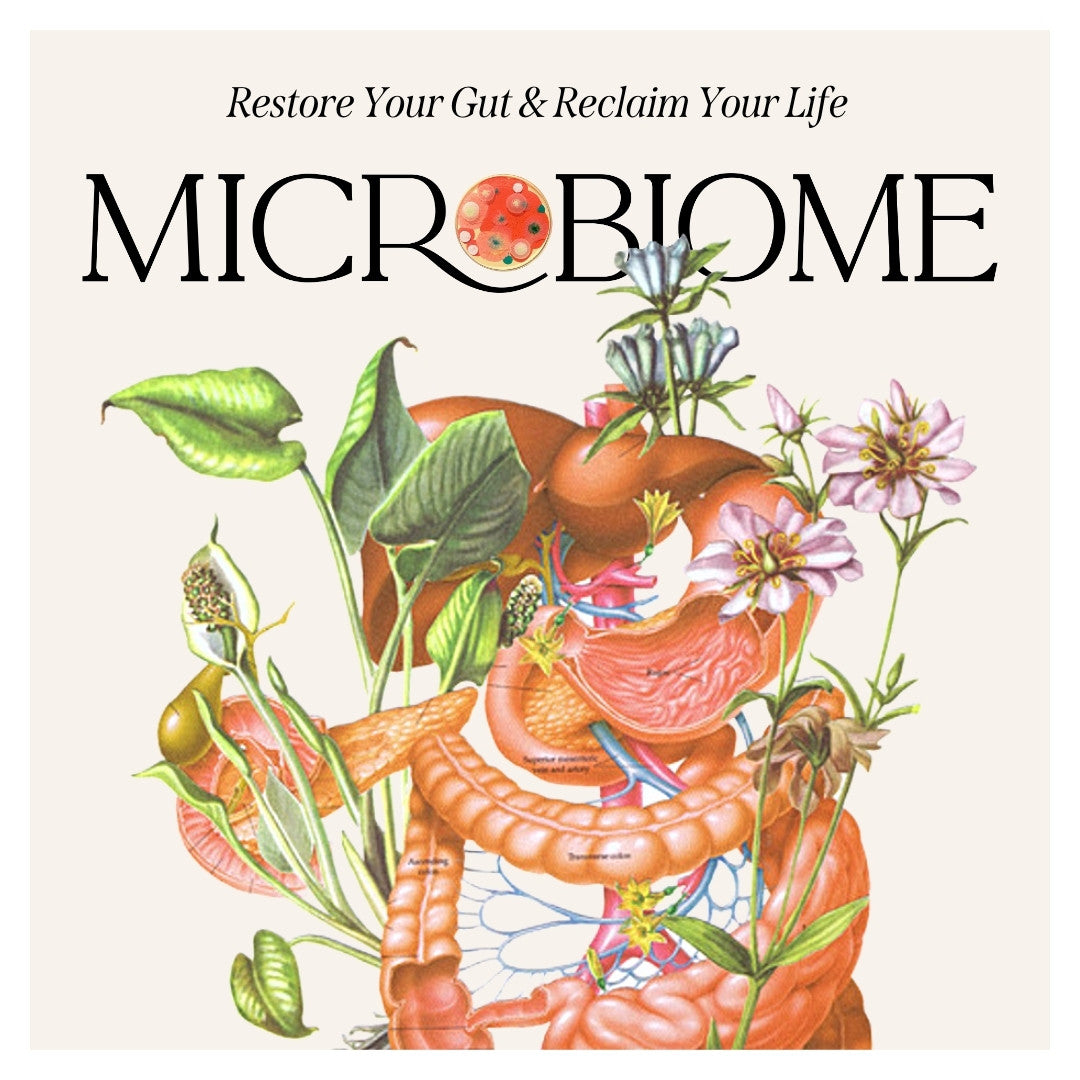

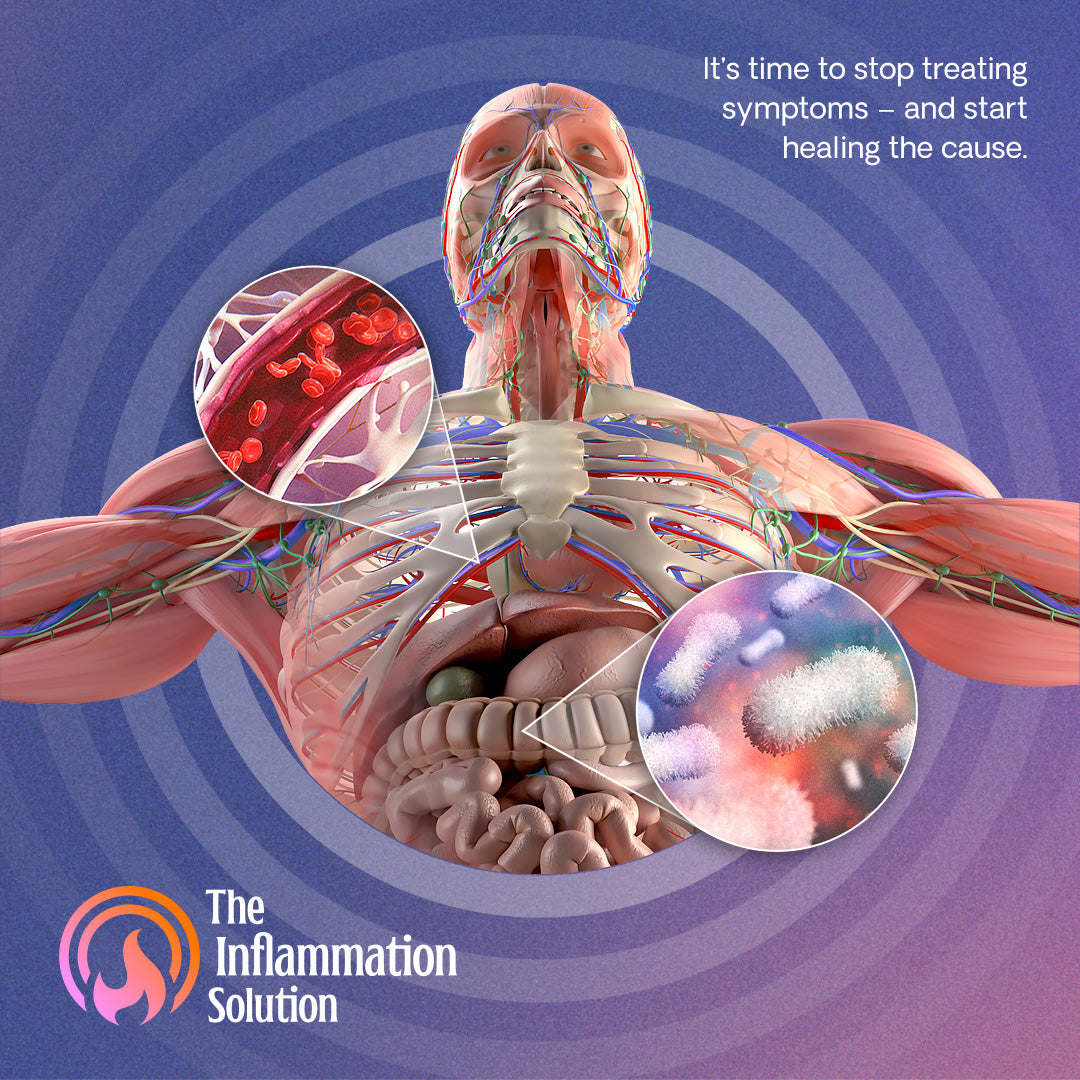
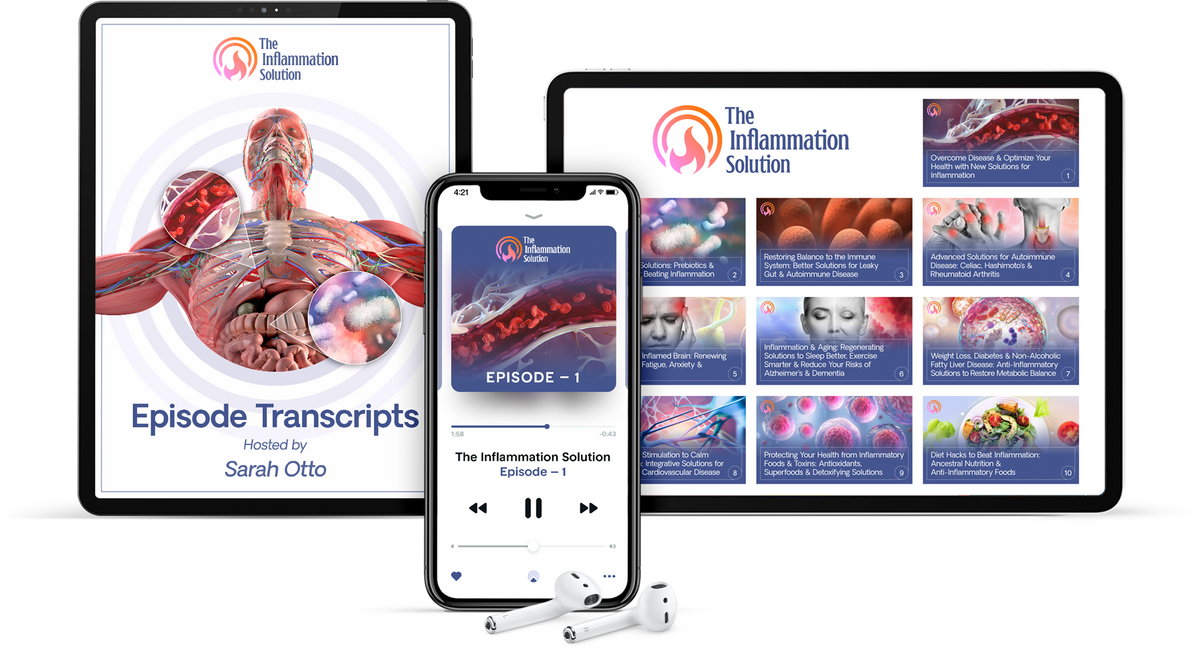
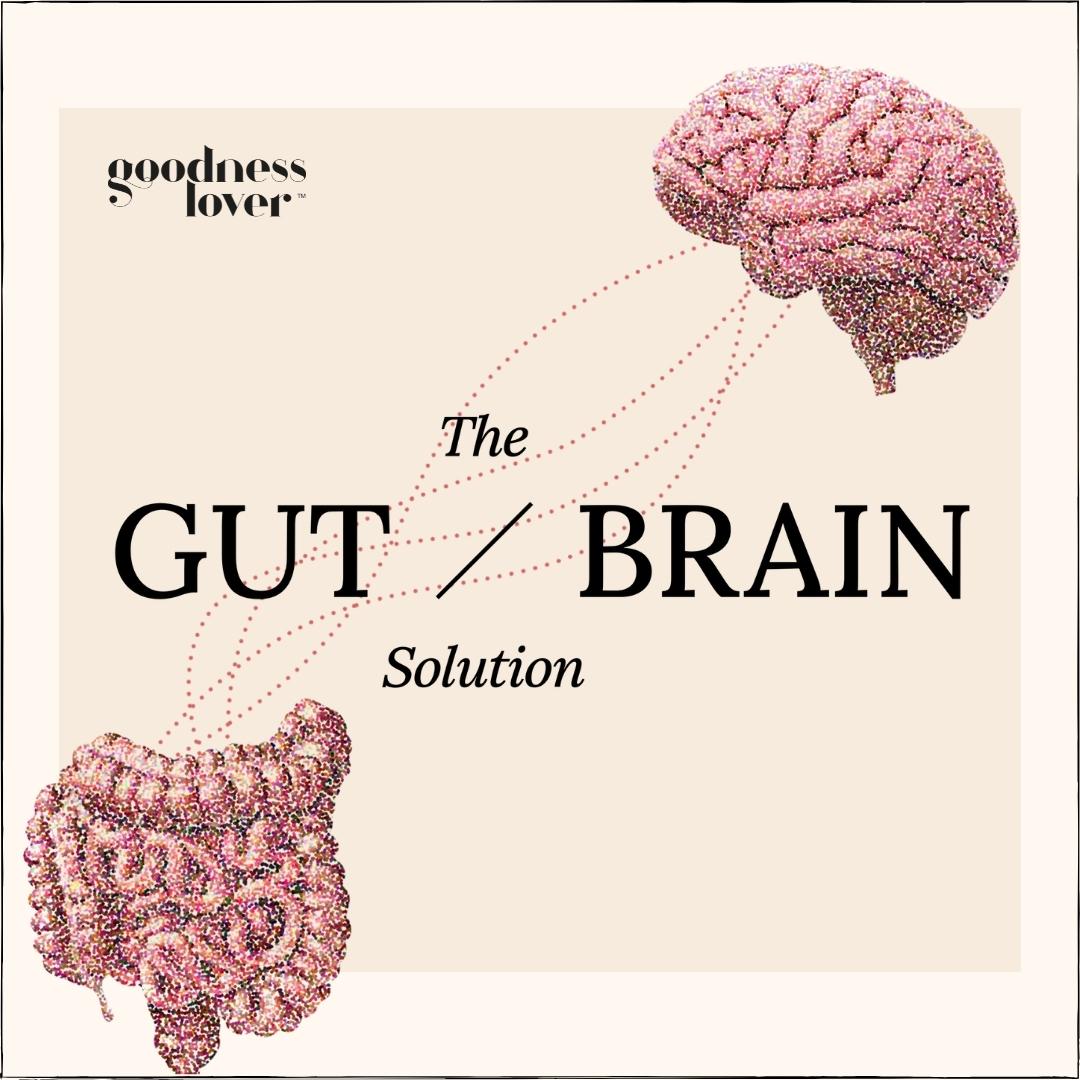

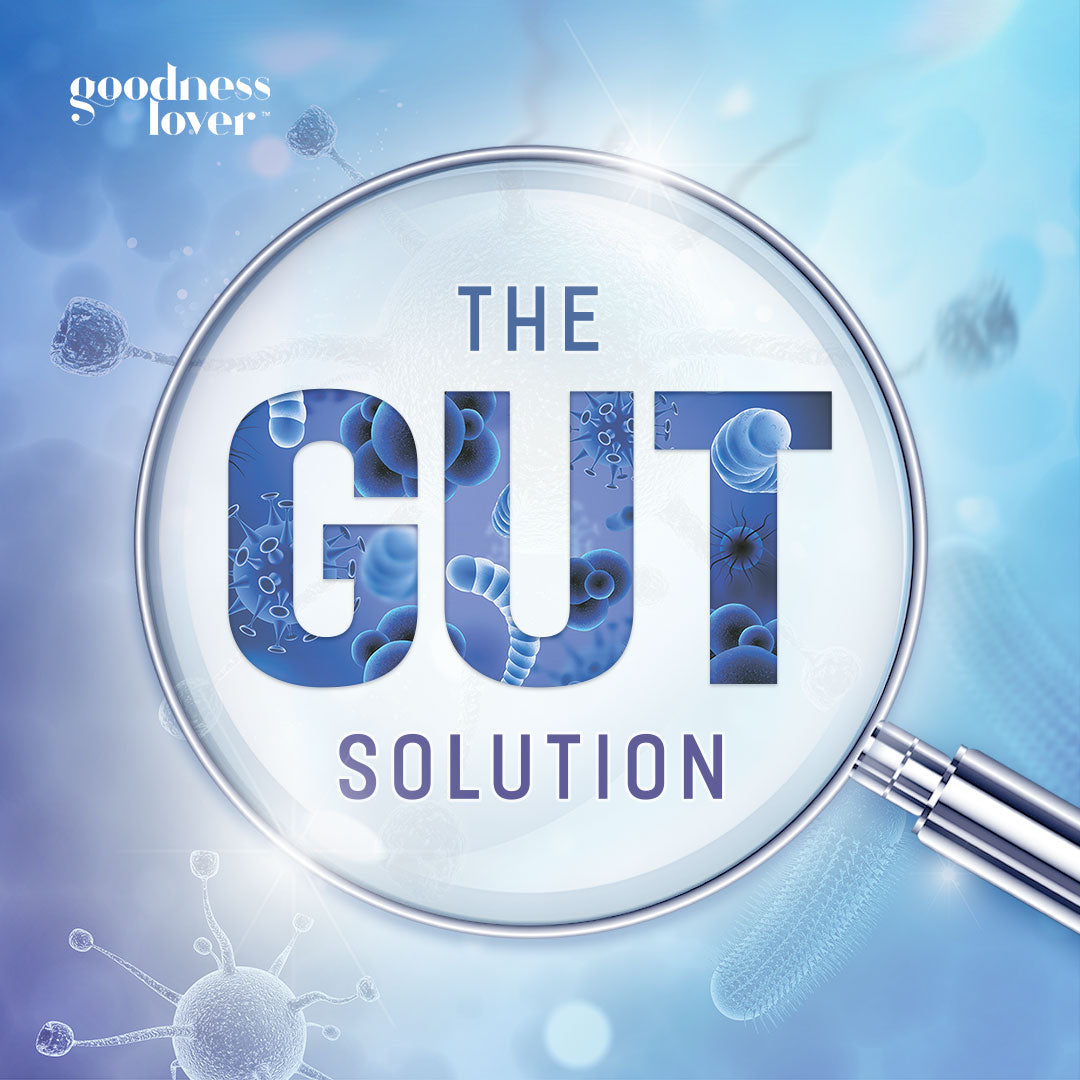

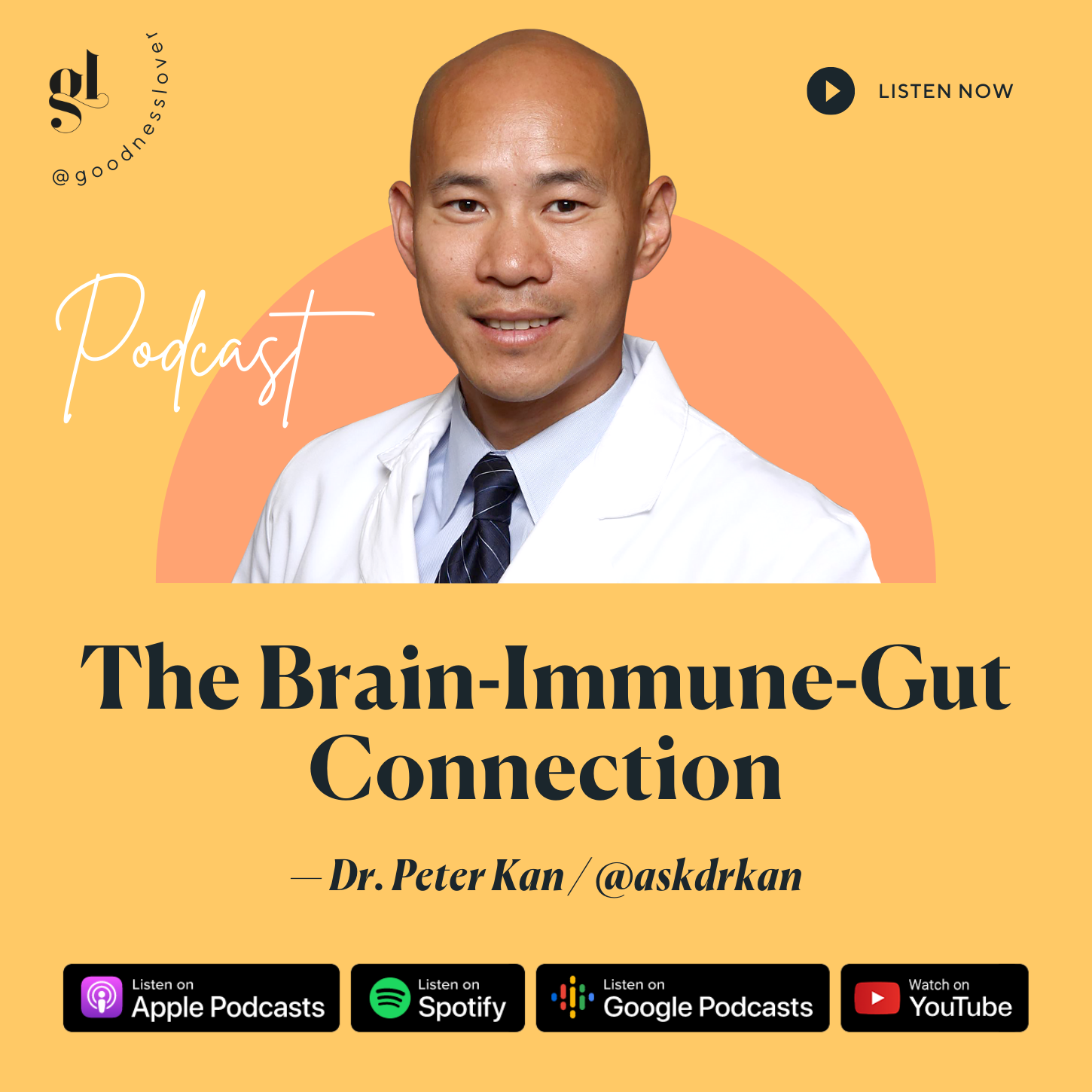
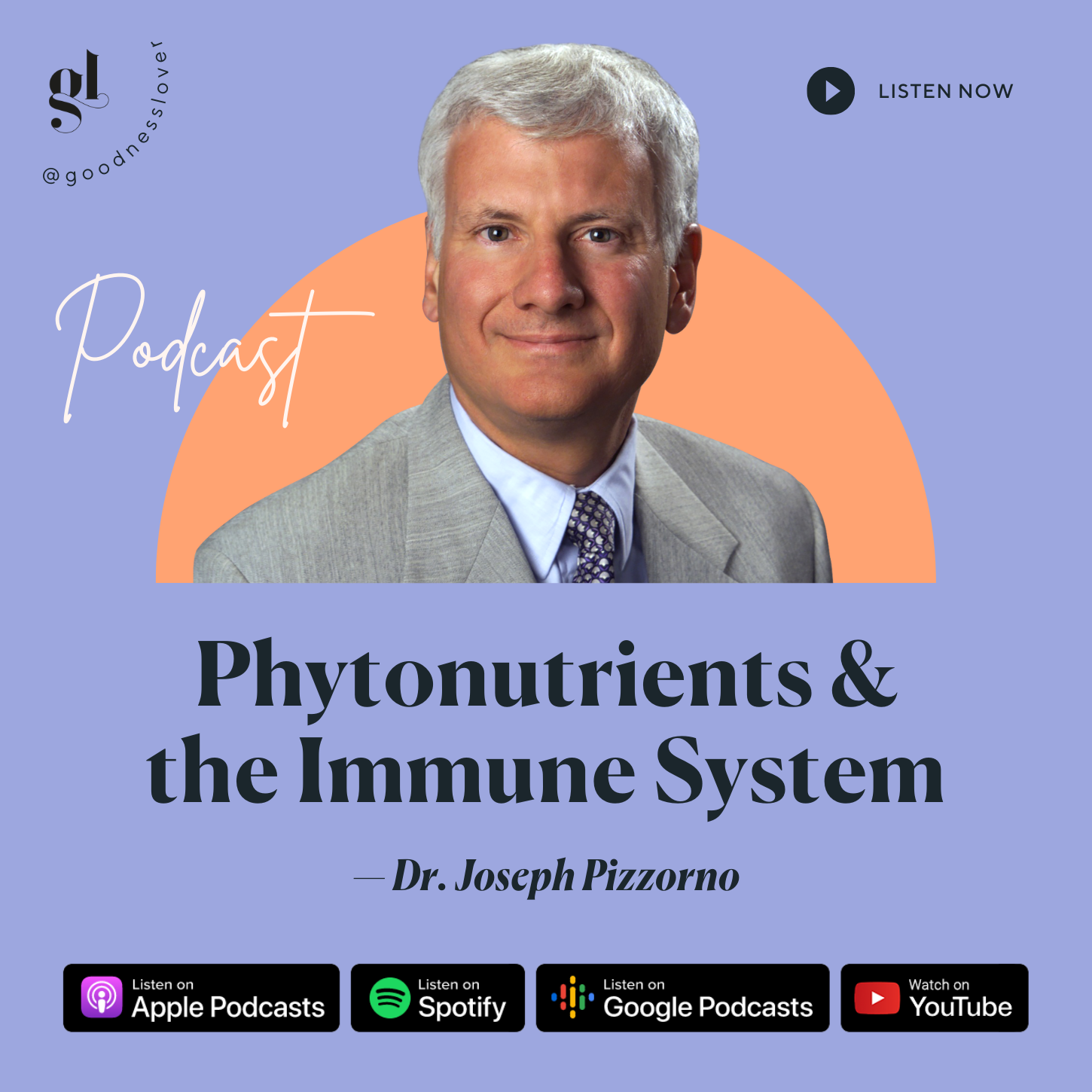

What Do You Think? Comment Below: